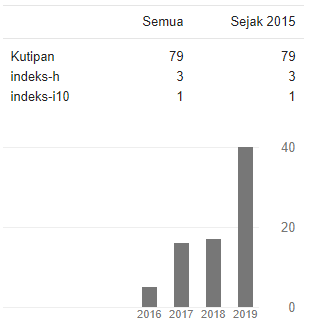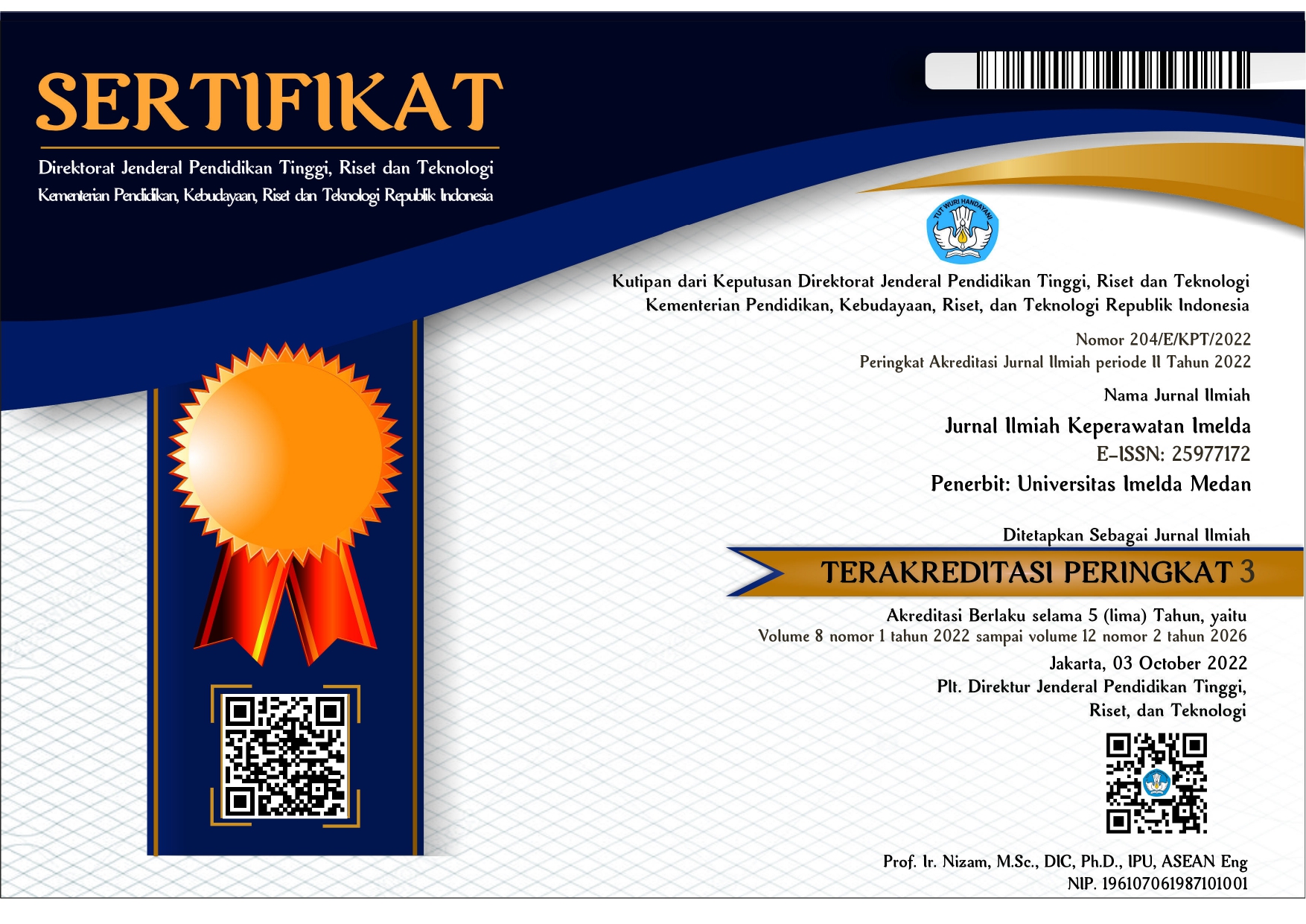GAMBARAN PENGETAHUAN IBU HAMIL DALAM PENCEGAHAN PENYAKIT ANEMIA DI DESA KWALA BEGUMIT KABUPATEN LANGKAT
DOI:
https://doi.org/10.52943/jikeperawatan.v6i1.348Keywords:
Pregnant Women, Anemia and PreventionAbstract
ABSTRACT
Anemia in pregnancy is anemia due to iron deficiency. And is a type of anemia that the treatment is relatively easy, even cheap. Anemia in pregnancy is a national problem because it reflects the value of the socio-economic well-being of the community and its influence is very large on the quality of human resources (Manuaba, 2010). Knowledge of pregnant women about health, especially anemia will affect the behavior of pregnant women in the implementation of anemia prevention programs, these attitudes can be a response. Pregnant women generally suffer from iron deficiency so they only give a small amount of iron to the fetus needed for normal iron metabolism. This study aims to determine the description of the knowledge of pregnant women in the prevention of anemia in the Village of Kwala Begumit, Langkat Regency. Research in this study uses descriptive research. The sampling technique in this study is the probability sampling of the number of samples collected in this study amounting to 68 families in the Kwala Begumit Village, Langkat Regency in the January-March 2019 period. Data analysis techniques used were editing, coding, sorting, data entry and cleaning. The results of the majority of respondents aged 21-40 years were 47 people (69.22%) while respondents aged 12-25 years were 21 people (30.88%), and respondents aged 41-50 years were not found, respondents who were elementary school education numbered 27 people (39.7%), junior high school numbered 28 people (41.1%), high school and D3 / S1 / equivalent amounted to 7 people (10.1%), the majority obtained information sources through health workers totaling 22 people (32.4%), Relatives / Family totaling 18 people (26.4%), Print media totaling 12 people (17.6%) and through electronic media totaling 16 people (23.6%), the majority of jobs mothers only as IRT are 29 people (42.6%), farming is 21 people (30.9%), entrepreneurs are 15 people (22.1%) and civil servants are 3 people (4.4%), the majority of the level of knowledge there were only 34 respondents (50%), while 20 people (29.4%) had good knowledge and 14 people (20, 6%) had poor knowledge. From this study it can be concluded that the knowledge of pregnant women in the village of Kwala Begumit is categorized as quite related to the information media which is still lacking marked by the limited health care facilities that are centered at the Puskesmas Desa Kwala Begumit to be used by 15 hamlets in this village. However, limited facilities and level of education become one of the factors inhibiting a pregnant woman to get good knowledge and determine a good attitude in preventing anemia.
Downloads
References
Angreini, D. 2009. Persiapan Dan Perawatan Kemahilan . Pustaka Bunda :Yogyakarta.
Astria,Y. 2009. Keperawatan Maternitas.Graha Ilmu:Yogyakarta.
Budiyanto. 2005. Anemia Pada Kehamilan. Salemba Medika: Jakarta.
Dinkes. 2005. Indonesi Berkomitmen Turunkan Angk Kematian Ibu Dan Anak Dikutip Pada Tanggal 27 april 2011 jam 11.20 wib dari http:// Writen.
Notoadmodjo, Soekidjo. 2005. Meteologi Penelitian Kesehatan. Rineka Cipta.
Notoadmodjo, Soekidjo. 2008. Kesehatan Masyarakat. PT Rineka Cipta. Jakarta
Erfandi.2008. Anemia pada Ibu Hamil. Dikutip pada tanggal 20 april 2011 jam 11.30 wib dari http:// Puskesmas-oke blogspot,com.
Admina. 2008. Anemia Pada Kehamilan. Dikutip pada tanggal 25 april 2011 jam 14.30 wib dari http://Danicher-blogspot.com.
Prasetyono, Dwi Sinar. 2008. 99 Pertanyaan Seputar ibu Hamil. Diva Press. Yogyakarta.
Saifuddin, Abdul Baru dkk. 2005. Ilmu Kebidanan edisi 9. Yayasan Bina Pustaka Sarwono Prawi Rohardjo. Jakarta.
Setiadi. 2007. Konsep Dan Penulisan Riset Keperawatan. Graha Ilmu. Yogyakarta.
Struddarth dan Brunner. 2005. Keperawatan Medikal Medah edisi 2. EGC: Jakarta.
Suheimin. 2007. Konsep Ibu Hamil. EGC.Jakarta.









